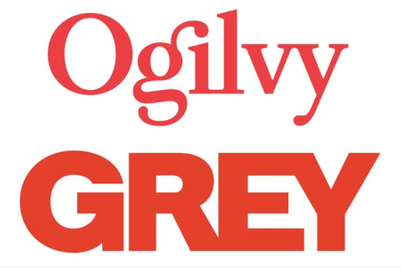
Schmidt told a roomful of budding entrepreneurs and their professors at the Chinese University of Hong Kong (CUHK) that the old ‘think global, act local’ adage is obsolete. In the digital era, all your actions, all your operations, are global.
That maxim is partly the basis of the company’s partnership with CUHK, which the university founded to support local entrepreneurs. There might not be anything revolutionary about another corporate/educational tie up to support entrepreneurship, but some of the ideas that came out of Monday’s event illustrate that the revolutionary part has already happened.
This is a globalized deal because it’s a US firm donating time and resources to a Chinese city and institution, and any offshoots are likely to benefit a whole world of internet users. But that can’t be too surprising. Google invests in good ideas no matter where they take root. Google Maps, as Schmidt pointed out, came from a couple of Australians working in the Netherlands. And Hong Kong is certainly a good gamble as far as picking a place to bet on entrepreneurship, given its business climate and industrious history.
Schmidt’s short opening speech and the following panel discussion with students and founders of local startups focused on nurturing the entrepreneurial spirit in the digital era. While innovation and building a new business was the pressing matter at hand, some structural nuggets came up that marketers and creatives should consider when working on campaigns for established brands.
The idea of ‘connectivity’ touched every part of the discussion. In each point or example there was an intrinsic reliance on it, both in the sense of devices talking to one another as well as the resulting relationships between people.
“Is there a business left in Hong Kong that doesn’t use the internet?” Schmidt asked. “If there is, then it’s small and it’s going to get smaller.” The chairman used the example of a local seaweed shop that put sales online and grew its business by some astronomical percentage, offering goods to the world rather than just to its city neighbourhood.
That’s certainly not a new kind of story, but couple it with the mobile and social boom of the past six or so years, as well as the speed at which information travels around the planet, and you start to see that any marketing that doesn’t take the world’s new, inherently connected dynamics into consideration is short sighted.
The global fascination with 'Dumb ways to die' is an apt example. The McCann Melbourne team behind the viral public-service pitch aimed its message at one city, but it hit London, Hong Kong, Mumbai and a multitude of others in every time zone. The cheeky Gangham Style also took aim at a local market but triumphed over whole world. So like it or not, target it or not, your audience is a global one.
Efforts in any one market can, and will, influence brand perceptions in every other one. The bubble you work in today is much bigger than the one you started in, even if it was just five years ago. Therefore connectivity is not another trend; it’s a permanent dimension of business, especially for marketing. And, as Schmidt told his audience, the only way to move forward is to embrace it. Don’t just think global, act global.
One panellist asked Schmidt’s how young entrepreneurs could balance such big thinking against small resources. The business leader used his company and experience as an answer.
“When I started at Google, I said to Larry [Page] and Sergey [Brin], ‘So this is a search company’ and they said 'No. It’s all the world’s information'.”
His point was, too often the shortcomings of entrepreneurs isn’t thinking too big; it’s thinking too small. “Entrepreneurship,” Schmidt told the crowd “can be the answer to every problem.” Solve a distinct issue—but now you have to address it on a global, not a local, scale.
Well, if marketing isn’t about thinking big and taking on planet-sized challenges, then what is it about? At its heart, this is a creative, problem-solving industry. In order to gain an advantage in the digital age, brands and the people driving them need to embrace the full scale of connectivity. Thinking about campaigns in separate channel or country categories sets you on a precarious path. Digital is everywhere. A billboard doesn’t have to be staid; a print ad can take the opportunity to lead you somewhere interactive and international; and your e-strategy might need to add some bricks-and-mortar tricks to its deployment. It’s all connected.
Fostering new businesses against that digital backdrop is the University’s goal with the Google partnership. The one-year program seeks to mentor young business leaders and give them access to more talent and experience while helping overcome the startup costs and isolation (read as ‘lack of connectivity’), which the University says is so typical in Hong Kong’s fragmented investment community.
The programme’s intent is lofty, the energy on stage was galvanizing and the underlying connectivity theme was certainly pertinent. But perhaps the most important lesson of the whole event, including for Schmidt himself, was an unintended one. Before the chairman could kick off any of the day’s enthusiasm, he had to apologize for taking the stage late. It turns out he was stuck in traffic on the way to the venue. So no matter what kind of big ideas you set out to conquer, or which modern technology you put into action, you’ll get nowhere fast if you don’t understand the real conditions on the ground first.



.jpg&h=268&w=401&q=100&v=20250320&c=1)





